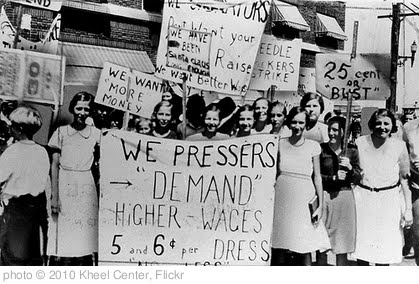“The truth will set you free. But first, it will piss you off.”
– Gloria Steinem
I’m a better blogger than I used to be.
Take a look at some of my oldest posts from 2008…(actually, please do that)….and you might think I wrote them from a padded cell. I posted irregularly. I veered from lengthy theological treatises to sentimental indulgences. I may have even composed an “open letter” or two.
While I still have a lot to learn, I think I’ve developed a bit more consistency in my posting schedule, tone, and overall approach to blogging in recent years. I typically write several drafts before posting something controversial. I give myself time to reflect before sharing ideas I feel strongly about. I try to get feedback from people I trust.
So it seems a little odd that, for the first time in my blogging career, I’ve been accused by some readers of being “emotional,” “erratic,” “self-righteous,” “snarky,” and “out-of-line.”
I suspect it is no coincidence that these adjectives arrived on the scene shortly after I started writing about women and the Church. For a lot of people, this topic comes with some serious baggage and is inextricably linked to images of angry women burning bras and baring their teeth. In fact, there seems to be an underlying assumption among both conservative and progressive Christians that evangelical women simply cannot speak up about their role in the Church without getting angry about it.
On the one hand, I think some anger is justified. For too long the Bible has been used to perpetuate the silencing and subordination of women, and the fact that only 10 percent of U.S. pastors are women makes complaints about the supposed “effeminization of church” infuriating.
As Carolyn Custis James observes in Half the Church:
“…Instead of casting a powerful gospel vision that both validates and mobilizes women, the church’s message for women is mixed at best—guarded, negative, and small at worst. Everywhere we go, a line has to been drawn establishing parameters for how much or how little we are permitted to do within the church.”
We are right to be frustrated by that.
But on the other hand, I’ve learned the hard way that when you argue your case from a position of anger, you almost always lose it. Unmitigated anger makes us prideful and clumsy. It keeps us from really listening to one another and navigating controversy with grace. Anger turns off potential allies and makes enemies of those with whom we disagree. Anger “does not produce the righteousness that God desires” (James 1:20).
Fortunately, I believe our case is strong enough that we can speak boldly in support of women in leadership without getting red in the face.
The most effective voices we can bring to this conversation will come from women who are funny, smart, civil and so informed about the content and context of Scripture that they can respond with wit and wisdom whenever it is used against them.
With this in mind, there are a few things that I think we can do better:
- In addition to pointing to the lack of female leadership in the Church, we must highlight “women of valor” who are leading and contributing in ways that make their effectiveness undeniable— women like Margaret Feinberg, Christine Caine, Carolyn Custis James, Mimi Hadaad, Elaine Storkey, Phyllis Tickle, Lauren Winner, Kathleen Norris, Nancy Ortberg, Nadia Bolz-Weber, Mama Maggie Gobran, and so many more. We must also speak up on behalf of the everyday “women of valor” whose lives exhibit the kind of faithful resilience it takes to change the world.
- Instead of treating men as the enemy, we must thank and celebrate the many men who have championed us publicly and supported us privately—men like John Stackhouse, Scot McKnight, Brian McLaren, Tony Campolo, Jim Webb, John Ortberg, our husbands, our fathers, our brothers, our pastors, and our friends.
- We must study Scripture and its context so vigorously that we can never be accused of not doing our homework or not taking it seriously. (Catherine Clark Kroeger is a good example of an egalitarian woman who knew the Bible well. )
- Depending on our audience, we may want to use the word “disrespectful” instead of “sexist” or “egalitarian” instead of “feminist.” There’s no need to turn people off with words that may be misunderstood.
- Rather than simply complaining whenever a conference, event, or organization shows a distinct lack of female involvement, we must be prepared to make recommendations and offer positive feedback. We must use our platforms, however big or small, to support other women whose voices need to be heard. (This is not the time for jealousy!)
Whenever I struggle with my own anger, I try to remember that the root of both misogyny and anger is fear.
And we have nothing to be afraid of.
I believe, deep in my bones, that things will get better. I believe that in light of the creativity and compassion that it takes to serve the world as Jesus would, the evangelical community will continue to grow more and more open to the diversity of gifts that women bring to the worldwide communion table, and that women of valor everywhere can truly “laugh at the days to come.” (Proverbs 31: 25).
***
What do you think? How can we advocate effectively for the equality of women in Church leadership without coming across as angry or bitter?
© 2011 All rights reserved.
Copying and republishing this article on other Web sites without written permission is prohibited.

